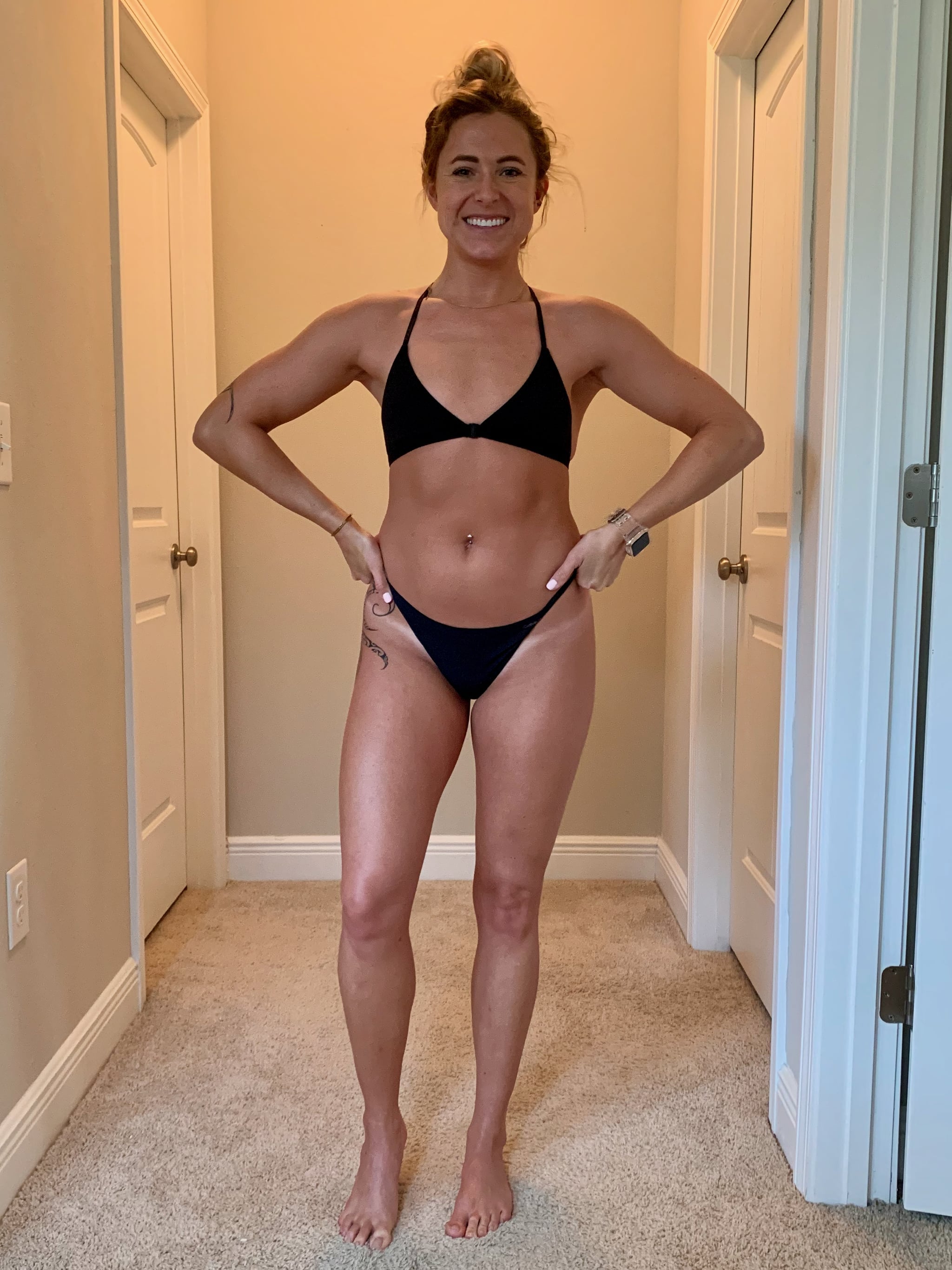
I am 30 years old, stand at 5’4″, and weigh 140 pounds. I’m the heaviest weight I’ve ever been, and I’m finally OK with it — because I’m also the strongest and healthiest I’ve ever been.
Throughout adulthood, I’ve weighed anywhere between 115 and 135 pounds. While battling bulimia for 10 years, my weight was a roller coaster. Periods of binging and purging left me swollen and puffy, and the weeks of restriction and punishing cardio that followed made me look frail. After recovering from my eating disorder in 2015, I hovered consistently around 125 pounds. This became my “comfortable” weight, a personal indicator I was doing fine.
Then I fell in love with weightlifting.
After gyms began to reopen in Colorado last year, I decided to write myself a weight-training program focused on building muscle and losing fat. Though I’ve favored weights over cardio ever since I became an NASM-certified fitness trainer a few years ago, I hadn’t stuck to my own consistent routine due to several moves and COVID gym closures. Once I was back in the gym, I quickly discovered that weightlifting was my escape from the seemingly constant bad news, loneliness, and uncertainty that plagued 2020.
After moving to join my partner in Florida in October, I continued to adhere to the strength-training regimen I had created for myself. My weekly gym schedule kept me rooted during my transition to a new town where I knew virtually no one. I got to the point where I loved and looked forward to the part of my day I spent at the gym. I began to feel more energized. I slept better. My skin was clearer. Then I stepped on the scale and learned that I had gained more than 10 pounds in four months.
Just because I consider myself fully recovered from my eating disorder doesn’t mean I’m immune to disliking and critiquing my body from time to time. Seeing 140 flash on the scale sent me into a momentary tailspin. For a second, I was transported back to my 21-year-old self, spending hours a day on the elliptical and overexamining every bite I put in my body to no avail. It was heartbreaking.
I had to take a step back and check in with myself, my partner, and my therapist. I needed the reminder that my weight is just that — my weight! A number! Even as a personal trainer with years of fitness-industry experience (and years of therapy), I still had to remind myself: muscle is denser than fat. I needed a better way to track the progress I knew I was making.
To put my progress to the test, I stepped on a Bioelectrical Impedance Analysis (BIA) machine, which sends an imperceptible electrical current through the body to analyze measurements including body-fat percentage and muscle weight. I discovered that during the course of my weight-training program, I had in fact reduced my body-fat percentage, but I had also gained more muscle, resulting in a higher weight number than I had ever seen before.
When I feel this good and this strong and this confident in my body, there’s no room for the negativity or doubt a scale could project onto the progress I’ve made.
It clicked. The scale is not a clear indicator of health at all. In fact, the danger lies in how we’ve been conditioned to track, examine, rank, and compare ourselves based on the digital numbers this inanimate object spits out. Weight is just one piece of data that reflects how our bodies have changed — but it leaves out the majority of the story. On any given day, a person’s weight can fluctuate five pounds or more, depending on a number of factors, including what they’ve eaten or what time of day they step on the scale.
There are much better ways to track your progress when it comes to your fitness goals. The only number indicators I trust are body-fat percentage and muscle percentage readings and a tape measure around my midsection, where I tend to store most of my fat. Before-and-after pictures, mood trackers, and even checking in on how you feel more generally are also great ways to track progress month over month.
I now avoid the scale entirely. It has no place in my bathroom, I skirt by it at the gym, and I request to face away from the scale at the doctor’s office. When I feel this good and this strong and this confident in my body, there’s no room for the negativity or doubt a scale could project onto the progress I’ve made.
Trash the scale. We certainly don’t need her bad vibes around here anymore.
Image Source: Avery Johnson
